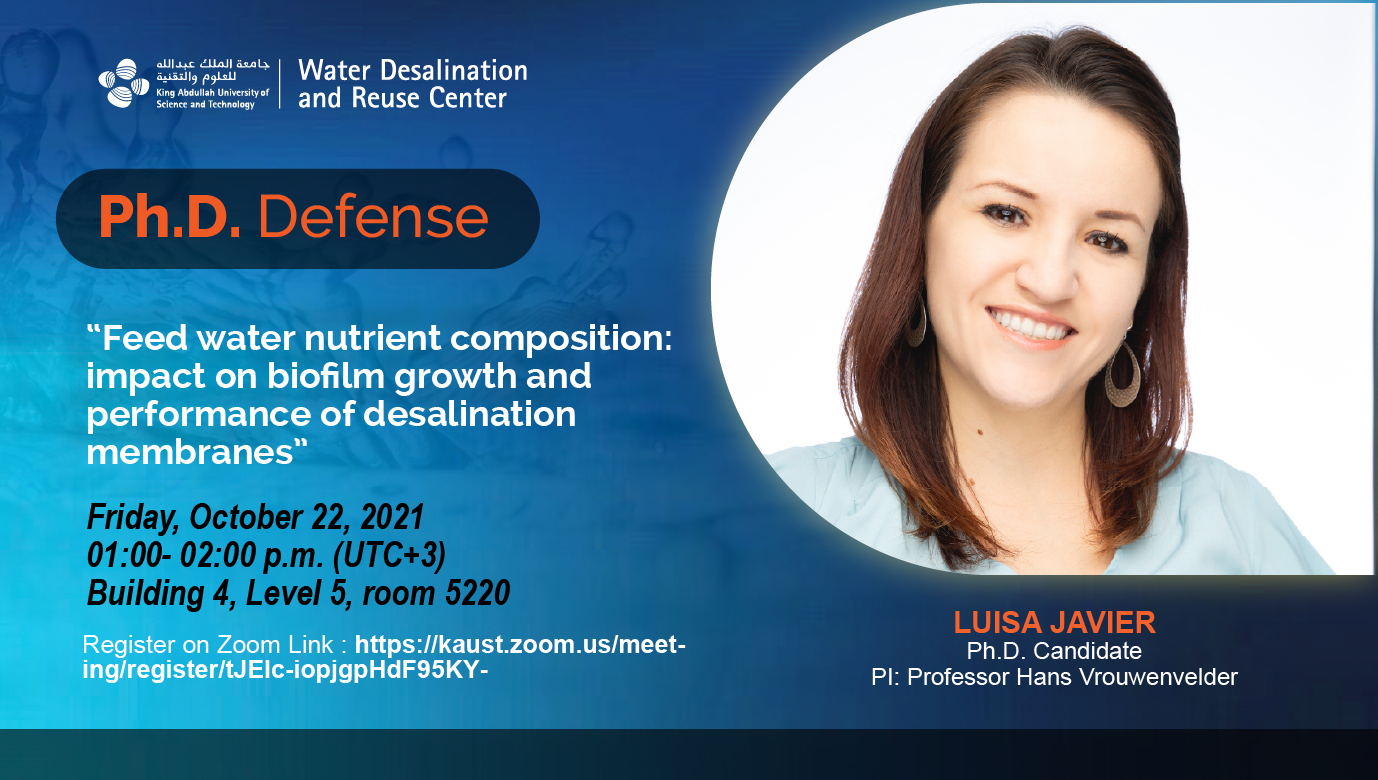



Nanofiltration and seawater reverse osmosis desalination are still considered energy-intensive processes. Seawater desalination can be 25 times more energy-intensive compared to conventional water treatment processes. Biofouling is a significant problem in achieving sustainable desalination, as it increases the energy demands and the overall water cost. Limiting the biodegradable substrate concentration in the feed water is proposed as a suitable approach to control biofouling in desalination membranes. Until now, nutrient manipulation studies have not fully elucidated to which extent this technique affects biofilm morphology and if the manipulated biofilms are easier to control and remove with a chemical-free approach.
The main objective of this Ph.D. study is to provide a comprehensive assessment of the effect of nutrient manipulation on the physical properties of the developed biofilm to decrease the impact of biofouling on system performance and enhance the cleanability of biofilms in membrane systems. The aspects of the study included biofilm development and related system performance under varying feed water biodegradable carbon and phosphorous concentrations and the impact of permeation. The results of this study indicate that lowering the assimilable organic carbon and phosphorus concentration in the feed water controls biofilm formation and prolongs membrane system performance. A strategy of enhancing the hydraulic cleanability of biofilms in RO systems could involve avoiding the increase of the phosphorus concentration by eliminating the use of phosphonate-based antiscalants. The higher detachment for biofilms grown at a lower phosphorus concentration was explained by more soluble polymers in the EPS, resulting in a lower biofilm cohesive and adhesive strength. We demonstrated that the phosphorus concentration in the feed water affected the microbial and EPS composition. A homogenous bacterial community composition was found over the biofilm height. Permeation played a role in shaping biofilm localization, and therefore, the observed impact on the system performance parameters. This Ph.D. dissertation represents an exciting advance towards greener desalination by controlling and enhancing the cleanability of biofilms through feed water nutrient manipulation.
Luisa Javier is a Mexican Process Engineer with the mission of integrating science and entrepreneurship in projects for the environment. Her work has focused on understanding how the feed water nutrient composition impacts biofilm growth and the performance of desalination membranes. Currently, she is co-founder of the biotechnology startup Wayakit and a Ph.D. candidate at KAUST.